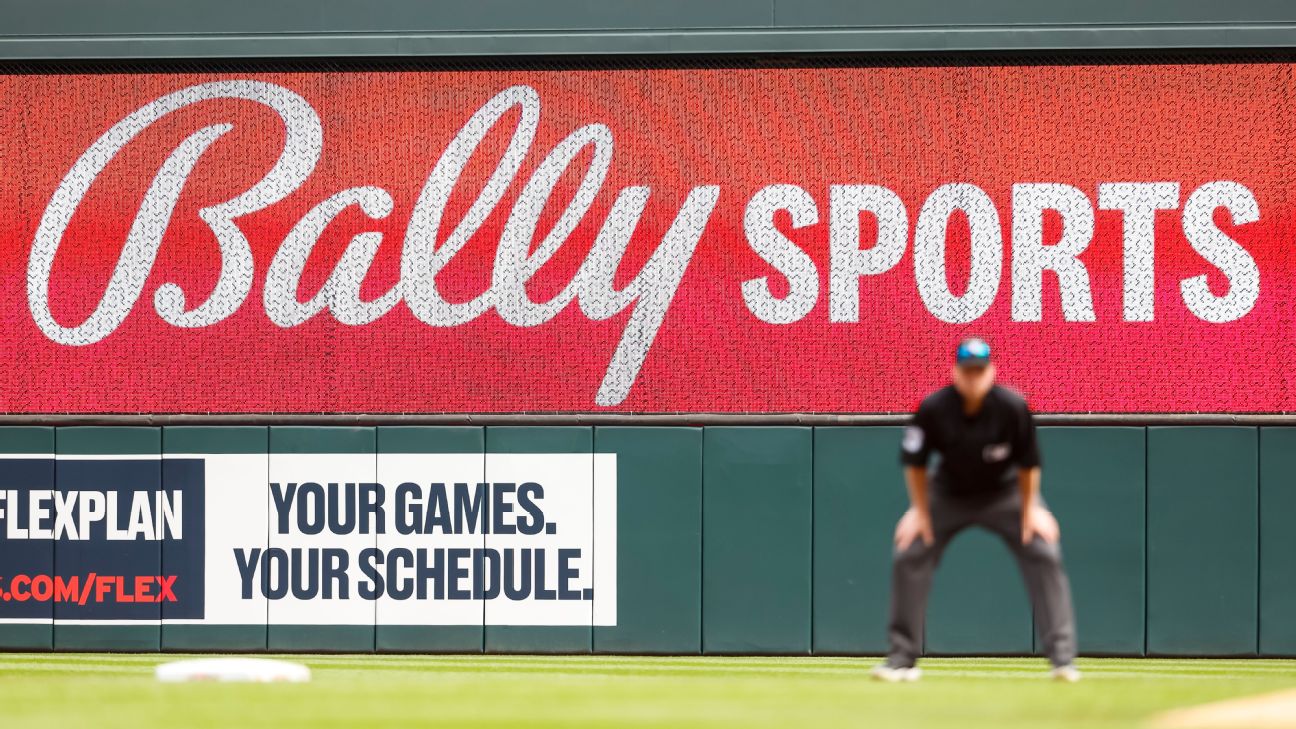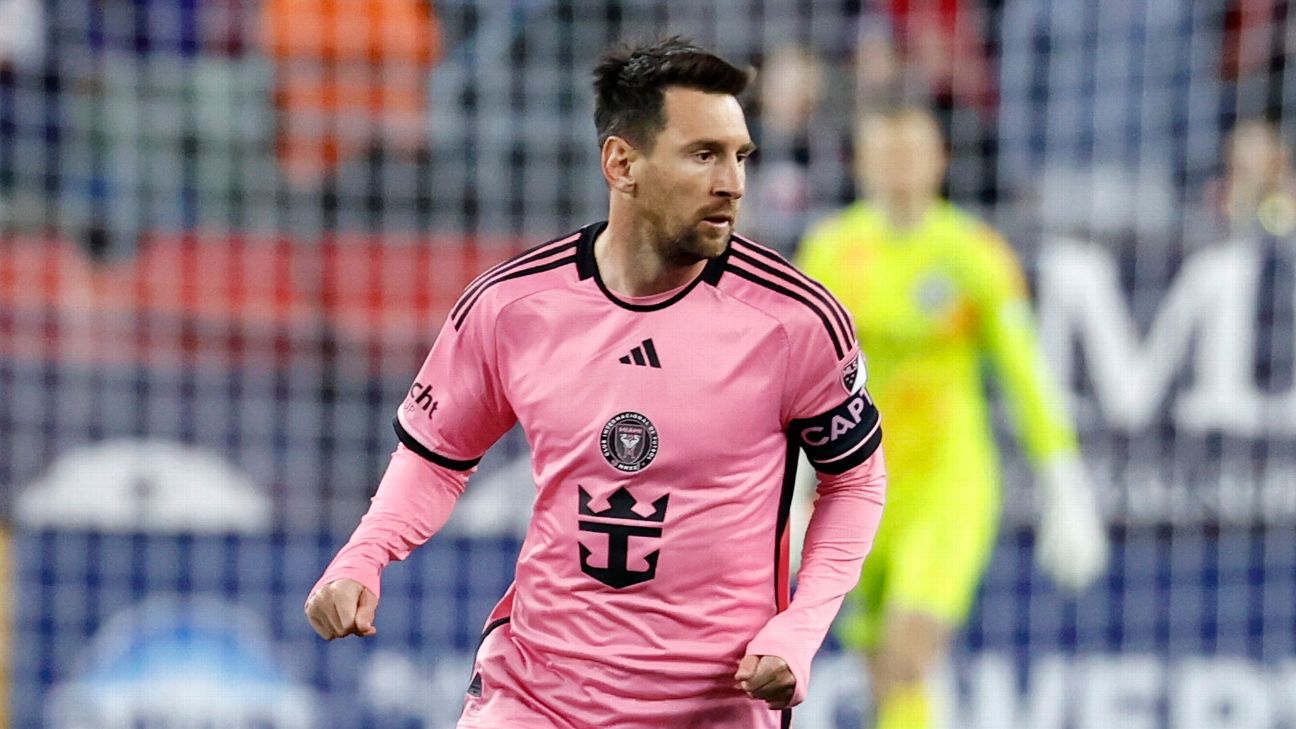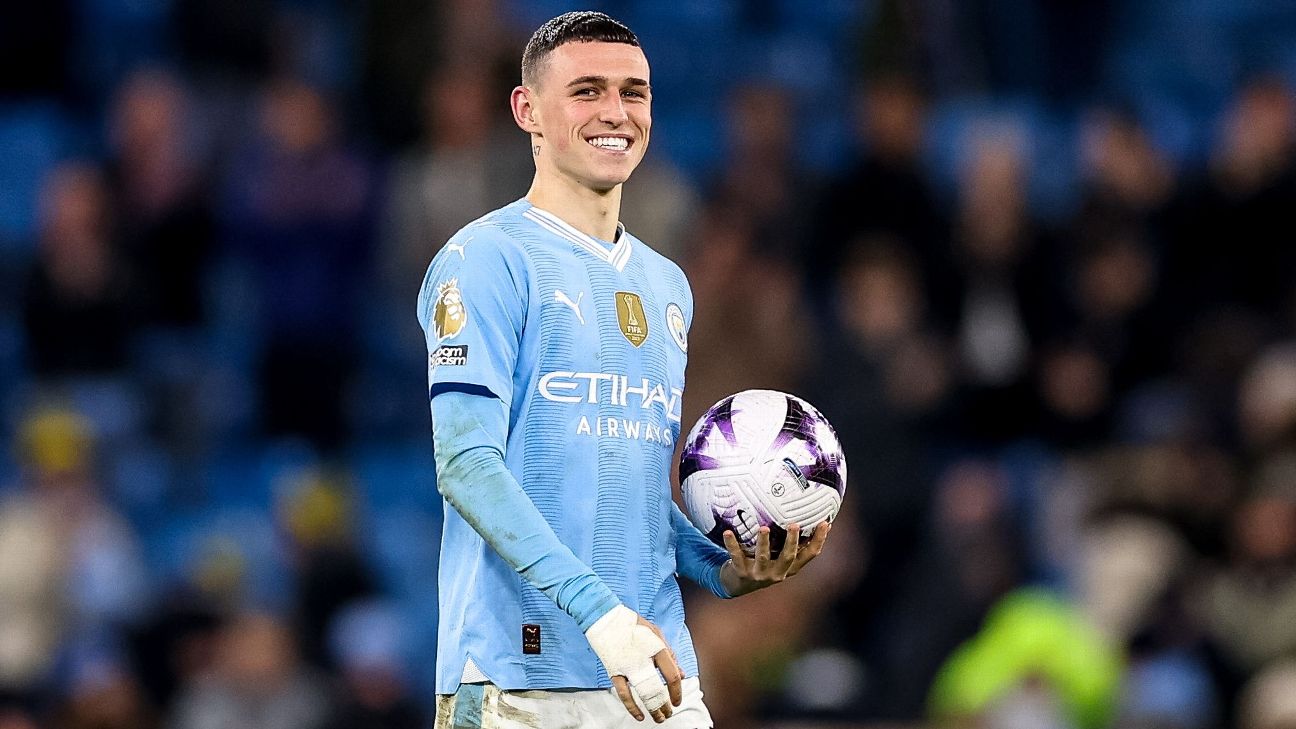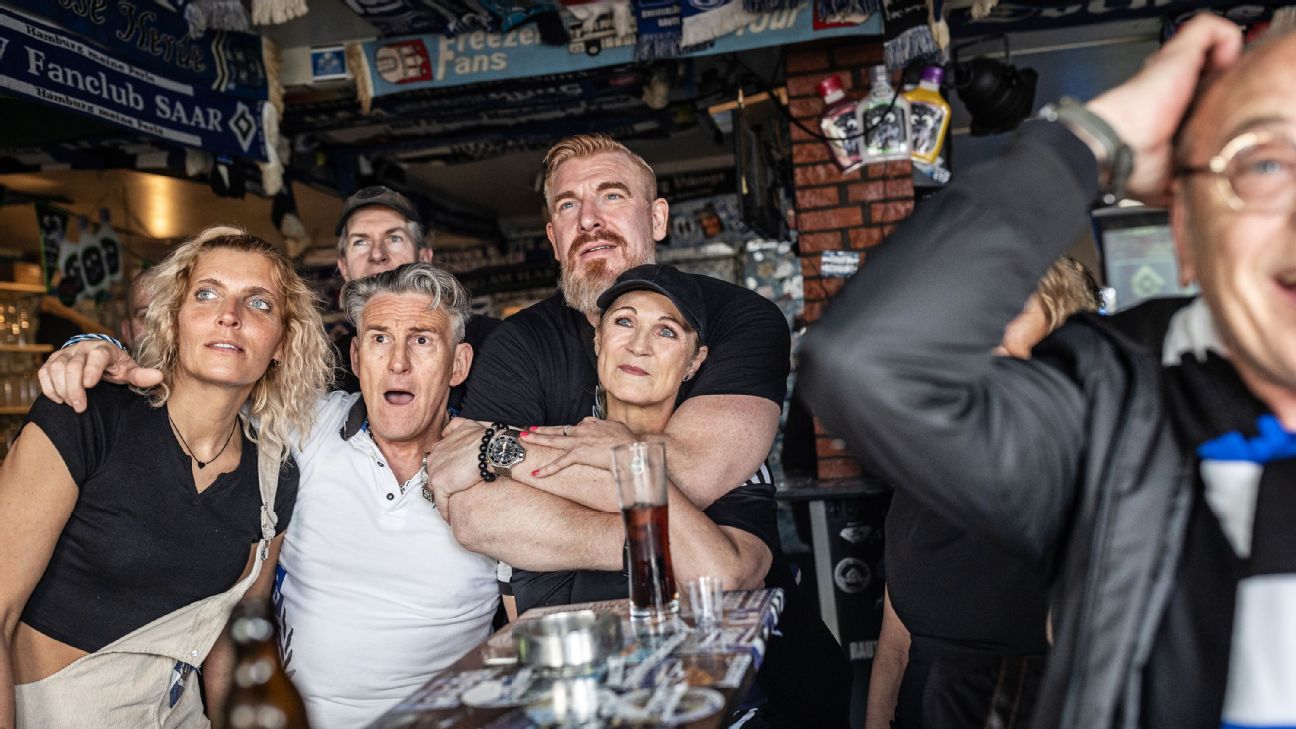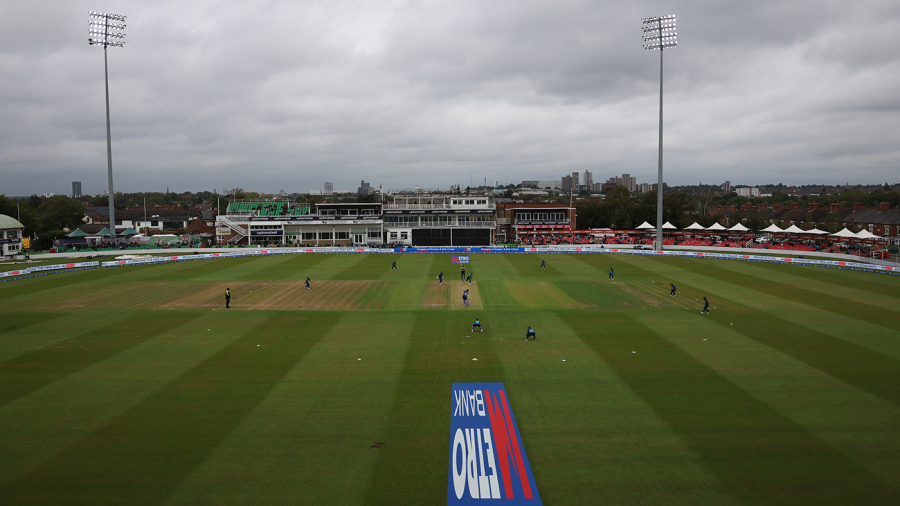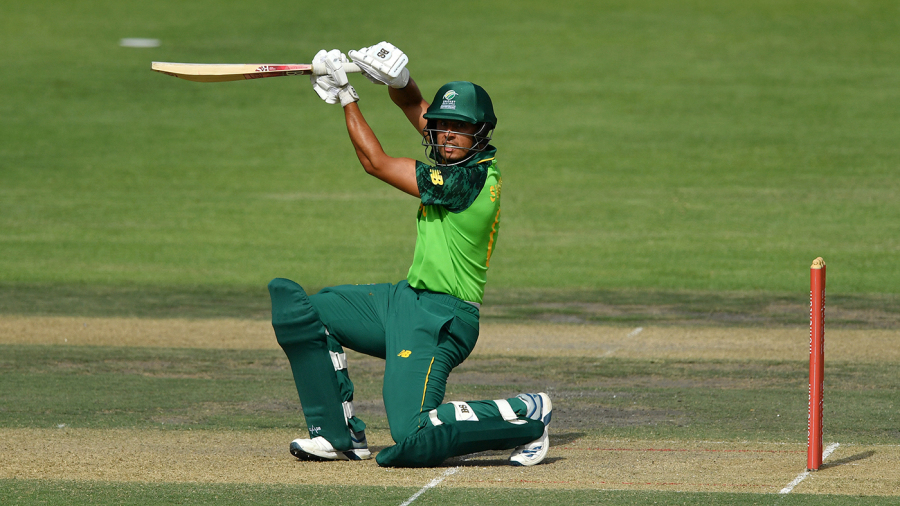![Barcelona woe 240419 [1296x729]](https://a.espncdn.com/photo/2024/0419/r1321069_1296x729_16-9.jpg)
Toughest-ever county overseas market puts visa criteria in focus
Remember when Barcelona won LaLiga? No? It happened less than a year ago. Seriously. I promise.
At this time last year, Xavi's team was cruising to their first LaLiga trophy in four years, and their first one of the post-Lionel Messi era. It seemed like they'd finally landed on a coach who was able to revive the club's identity. And although they'd pulled countless financial levers and sold off substantial sums of future revenue, maybe they'd just managed to wriggle their way out of it. They'd be favorites in LaLiga once again and -- perhaps -- the increased revenue from a handful of deeper Champions League runs, coupled with the club's continued ability to develop young talent, would keep them competitive at the upper-most echelon of the game.
Or maybe not. Things spiraled out of control so quickly that Xavi announced -- before the end of January -- that he'd be leaving the club at the end of the season, despite recently signing a new contract through 2025. Things then briefly got better, according to Xavi, because he decided to leave. "If I hadn't made it, it would have been a disaster. It was the right decision," he said last week. "That calm is the reason we are where we are. Without it, it would have been much more difficult."
- Stream LIVE: Real Madrid vs. Barcelona, Sunday, 2 p.m. ET, ESPN+
There was no evidence of calm on Tuesday, and it was a disaster. Barcelona blew a 4-2 aggregate lead to Paris Saint-Germain at home in the Champions League quarterfinal after Ronald Araújo got sent off in the 29th minute, Xavi kicked an advertising board (and got sent off), and João Cancelo slide-tackled a retreating Ousmane Dembélé in the box.
Madrid, meanwhile, did what they always do: won a game that they had no right to win. Despite facing 33 shots and attempting just eight against Manchester City at the Etihad, they drew 1-1 and managed to prevail in penalties. They're the favorites in the Champions League -- ahead of Bayern Munich, Borussia Dortmund and PSG -- and have an eight-point lead over Barcelona ahead of Sunday's game in Madrid.
While, currently, the two clubs seem miles apart, what would it take for Barcelona to eventually catch up to Real Madrid?
They're almost there -- for nowRight now, they're not that far away. In fact, despite what the table says, they have the best underlying numbers in Spain. Here's how the league stacks up, by non-penalty expected-goal differential:
Now, expected goals don't tell us everything -- they just tell us more about a team than any one individual stat, including goals or points or wins. Per research from analyst Ben Torvaney, who used to work for AC Milan, a combination of goals and expected goals best predicted future performance. With much more fancy modeling than I'm capable of, he basically found that a mixture of 70% expected goals and 30% percent goals worked best.
By far the most important thing a soccer team can do is create better chances than it concedes. But some teams and players are better at preventing or converting chances than others, and teams aren't necessarily always trying to maximize their expected-goal numbers, so this approach picks up on some of that.
A rough approximation of Torvaney's research would be to create a team rating that's a mixture of 70% of a team's non-penalty xG differential and 30% of a team's goal differential. With that -- and what we'll call "adjusted goal rating" -- here's how LaLiga looks so far this season:
Real Madrid are leading the way at plus-1.09 adjusted goal rating per game, with Barca in second, at plus-0.93. In Catalonia, that's a sizable decline from last year's mark of plus-1.23. Madrid, meanwhile, have been headed in the opposite direction in each of the past three seasons: 0.77 two years ago, 0.84 last year, and now up above 1.0 this season.
Funnily enough, although Barcelona's performances have been worse this year, the results really haven't been. Last season, they were eliminated from the Champions League at the group stage. This season, they made the quarterfinals and were leading the tie with just about 40 minutes left to play. And although they're eight points behind Madrid, who they finished 10 points ahead of last season, it's not really because they aren't winning matches.
Last season, Barcelona finished with 88 points. This season, they're on pace for 86. The reason this season seems like such a disaster is that Real Madrid got a lot better. In addition to the improved fundamental performance, Real have ratcheted up their results, too. Last year, they won 78 points. This season, they're on pace for 96 -- a mark that's been beaten just once in club history.
Will the gap start to close?Viewed through the broadest possible lens, Real Madrid are an aging team that wants to win now, while Barcelona have just entered into their prime years.
The average age of Madrid's squad this season, weighted by minutes played, is 28.1 years -- 76th among the 96 teams in Europe's Big Five leagues. Barcelona, meanwhile, are middle of the pack, 26.7 years -- 35th in the Big Five. (For reference, Toulouse (24.6) and Rayo Vallecano (30.2) are the respective youngest and oldest teams in Europe.)
However, those aggregate numbers don't paint a realistic picture of either team's trajectory. For Barcelona this season, three players have played at least 80% of the league minutes. One is 25-year-old fullback/center back Jules Koundé, but leading the team is 33-year-old midfielder Ilkay Gündogan, while third on the team is 35-year-old striker Robert Lewandowski. The only other player to break 70% of the minutes is 29-year-old fullback Joao Cancelo, who is on loan from Manchester City.
Lewandowski has scored 10 non-penalty goals and added eight assists, while no one else on the team has more than 12 combined goal contributions. Gundogan has created 8.9 expected goals with his passes -- Cancelo is second on the team with 5.3 -- and he's also leading the club in progressive passes completed. In other words, Barcelona's two oldest contributors might also be their most important -- and toughest to replace -- players.
For Madrid, it's the other way around. They have four guys who have played at least 70% of the available minutes. The oldest one is 31-year-old center back Antonio Rüdiger, while the other three are 25-year-old midfielder Federico Valverde, 23-year-old forward Rodrygo, and 20-year-old midfielder Jude Bellingham.
Since the disastrous deal to sign Eden Hazard in 2019, Madrid have exclusively signed young big-money players. Hazard was 28 when they paid €115 million to Chelsea to acquire the Belgian winger; since then, they've spent a whopping zero dollars on transfer fees for players over the age of 24. Any deals for players in their late 20s were from free transfers, and so the current make-up of the club is tons of young stars, with former stars, aging veterans, and free-transfer players making up the supporting cast.
Per the crowd-sourced valuations from the site Transfermarkt, Madrid currently have six players with a transfer value of at least €90 million:
- Jude Bellingham, MF, 20: €180m - Vinícius Júnior, FW, 23: €150m - Rodrygo, FW, 23: €100m - Federico Valverde, MF, 25: €100m - Aurelien Tchouameini, MF, 24: €90m - Eduardo Camavinga, MF, 21: €90m
No other team has more than four of these players, and there are only 21 of them in the whole world. In other words, 29% of them play for the same team. And if Kylian Mbappé (€180m) actually does join Madrid this summer, then a full third of them will be wearing all-white at the start of next season.
Barcelona's haphazard team-building approach has led them to the inverse of their eternal rivals. The only €90m+ player on Barcelona is 19-year-old Gavi, who made the jump from good young player to good player this year ... but tore his ACL in November. It's worrying how reliant the club became on a player so young, especially given what happened with 21-year-old Pedri (€80m), who played nearly 2,500 minutes as a 17-year-old in 2020-21, but hasn't come close to hitting that mark in any of the seasons since, thanks to a succession of injuries. While both players still hold plenty of promise -- potentially a decade of world-class midfield play for Barcelona -- the main predictor of future injuries is past injuries.
The bulk of Barcelona's squad sits in the €40-to-80m range. In addition to Pedri, there are seven other guys:
- Lamine Yamal, FW, 16: €75m - Frenkie de Jong, MF, 26: €70m - Ronald Araujo, DF, 25: €70m - Raphinha, FW, 27: €50m - Jules Kounde, DF, 25: €50m - Andreas Christensen, DF, 28: €40m - Alejandro Balde, DF, 20: €40m - Vitor Roque, FW, 19: €40m
For Madrid, there's only one player in this range: 26-year-old center back Éder Militão, who tore his ACL back in August.
Going forward, Barcelona will need to replace and/or find the high-end game-breaking talent to go with the solid middle of a supporting cast they've established. Madrid have already established their superstar core, especially if the Mbappe thing comes to fruition, as we all expect it will. Going forward, they'll just need to refine and eventually turn over their supporting cast.
So where would you rather be?In a vacuum, Barcelona's squad situation really isn't that bad. There are a lot of good players in unspectacular-but-important roles. There's a lot of uber-young talent that will continue to develop. Pedri and Gavi could get healthy. Lamine Yamal is ... the greatest 16-year-old soccer player I've ever seen? Balde has been quite good at left back when healthy. Vitor Roque is promising, and Pau Cubarsí hasn't looked out of place at center back despite only being 17.
All they really need are a couple game-changing superstars in order to consistently be among the best teams in the world. It's easier said than done, of course, but Barcelona are supposed to be the team that every superstar wants to come to. But even if they want to come to Barcelona, it doesn't mean that they can.
Barcelona will always make a ton of money. The Camp Nou, which is being expanded, will bring in more fans and therefore more matchday revenue than any other stadium. Plus, the Barcelona brand is still one of the most valuable in the world, which enables the club to sell the shirt for lots of money and attract all kinds of sponsorship deals that may be unavailable to just about anyone else. In fact, if you exclude broadcast revenue, Barcelona made €587m in revenue for the 2022-23 season -- more than every other club in Europe.
The issue is that in exchange for an initial cash infusion, they sold off 25% of their future television revenue to the investment firm Sixth Street. Currently, that comes out to about €41m of lost broadcasting revenue per season. Each season, LaLiga sets a squad-cost limit that is the club's revenue minus debt payments and so-called non-sporting expenses. The up-front cash from the Sixth Street deal is gone -- that deal is now reducing their annual revenue -- and since Barca still have a massive amount of debt to pay off from the wild spending of the Messi era, they're suddenly facing a much lower squad-cost limit.
As of February, LaLiga put Barca's squad-cost limit at €204m -- well below their annual revenue, but also well below Atletico Madrid's limit (€303m) and less than a third of what Madrid (€727m) are able to spend. This isn't a hard cap, and Barcelona are still spending well above their limit, but they're unable to spend like their rivals can. See: the meager €3.4m spent on transfer fees last summer.
So, at least where things stand as of now: Barcelona can't go out and sign those superstars to compliment an already-built supporting cast. They can't spend big on someone to step in and replace Lewandowski right away, they couldn't replace Sergio Busquets when he left last summer, and they probably won't be able to replace Gundogan whenever he leaves the club or begins to slow down.
Madrid, meanwhile, have continued to move on from stars like Casemiro, Cristiano Ronaldo, Raphaël Varane and Sergio Ramos at the right time in order to bring in extra revenue and free up their spending. They spent the fan-less COVID season playing in a tiny stadium so they could do work on the Santiago Bernabeu. They're a commercial powerhouse. And for the 2022-23 season, they made more money than any team in the world.
Real Madrid make more money than Barcelona and don't have debt issues limiting their ability to spend. With that €727m limit, there should be plenty of room for them to absorb Mbappe's presumed highest salary in world soccer. Beyond that, none of the other moves they'll need to make over the next few seasons -- some new defenders, maybe another passer in midfield to replace Toni Kroos and Luka Modric -- require them to go out and sign uber-expensive players.
To keep pace with Madrid, Barcelona have to be way more efficient with their spending than their rivals simply because they're just not going to be able to spend as much money. The academy, La Masia, should help with that -- it produced Gavi and Yamal, two teenagers who, if they stay healthy, should be starters for the club for a long time. Cubarsi, too, looks the part at 17, and 21-year-old Fermín López has at least been a useful bit of midfield depth. These players don't require tens of millions of dollars in transfer fees to acquire.
Two years ago, I made the argument that Barcelona could have just not signed anyone after they won the Champions League in 2015, cycled in academy products, and been in much better financial shape, and not much worse competitive shape. But in order to compete with a Madrid team that could have Mbappe, Vinicius Junior and Rodrygo up front, backed by the most versatile and athletic midfield in the world, they're going to need more than one of the academy kids, along with the likes of Vitor Roque and Pedri, to become genuine, reliable, needle-moving superstars.
That's unlikely to happen because the more likely outcome for basically every youth prospect is that they don't become a superstar. But there is still the opportunity for Barcelona to actually steer into the identity of being a club that develops and promotes youth talent, rather than just vaguely alluding to it while signing over-30 strikers and midfielders from Bayern Munich and Manchester City.
The reality is that Real Madrid have a ton of young stars, they have a ton of money to spend, and they've stopped wasting transfer fees on aging stars. Even if Barcelona were able to spend as much as Madrid, I'm not sure they'd be able to compete with that. And without the same financial resources, the only real way for Barcelona to compete with that over the next five to 10 years is by not trying to compete with it, by trying to do something different.
However, that would require some creativity and patience. When was the last time you associated either of those words with Barcelona?



